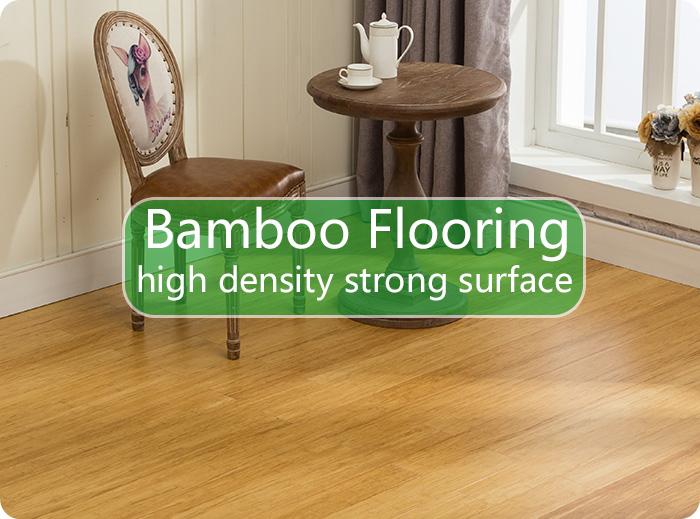Bamboo flooring has a high degree of environmental protection, mainly reflected in the following aspects:
First, the growth characteristics of the environmental advantages
Rapid growth and maturity: Bamboo is a fast-growing grass that matures in five years, while a tree takes about 25 years to mature. Compared to hardwood trees, its growth cycle is much shorter and it can provide raw materials for the market much faster, reducing the long-term dependence on natural resources.
Renewability and self-regeneration: Bamboo is a renewable grass with self-regenerating properties. It does not need to be replanted after harvesting and its roots are not damaged during harvesting, making it a very sustainable flooring material.
Natural growth without additional inputs: Bamboo grows quickly and naturally without the need for irrigation systems or fertilizers. This reduces the need for water and chemical fertilizers, reducing the negative impact on the environment.
Second, the harvesting method is environmentally friendly
Bamboo forests are usually carefully harvested by hand. This type of harvesting is relatively gentle and causes less damage to the ecosystem. Also, to ensure that the forest is not cut down all at once, the bamboo plants are harvested in different seasons, and only after the bamboo has matured (after five years). This allows for a healthy bamboo crop to be harvested in different parts of the forest each year, ensuring the sustainable development of the bamboo forest.
III. Significant ecological benefits
High Oxygen Production: Bamboo produces about 30% more oxygen than a broadleaf forest of the same size. This has positive significance in improving air quality and maintaining ecological balance.
Reduced carbon footprint: Bamboo is grown in China and bamboo flooring is mainly manufactured in China, which relatively reduces the carbon footprint. Although some people believe that manufacturing bamboo flooring in China and then shipping it to Europe for sale would compromise its environmental characteristics, in fact most European hardwoods are cut in Europe, shipped to China for manufacturing, and then shipped back to Europe for sale, which is twice as much as bamboo.
Fourth, certification to ensure environmental protection
To ensure that the bamboo flooring you buy is truly environmentally friendly, the company selling the flooring should provide a Forest Stewardship Council (FSC) certificate for the specific type of flooring. the FSC is a global organization dedicated to taking a responsible approach to the management of the world’s forests. If a company is FSC certified, it means that every company involved in the flooring production chain (farmers, manufacturers and sellers) is also FSC certified. This ensures that bamboo is harvested in a way that preserves the natural biodiversity and ecological processes of the forests, while following a long-term forestry management plan.
Keep an eye for more news & updates on BuzzsLash!




